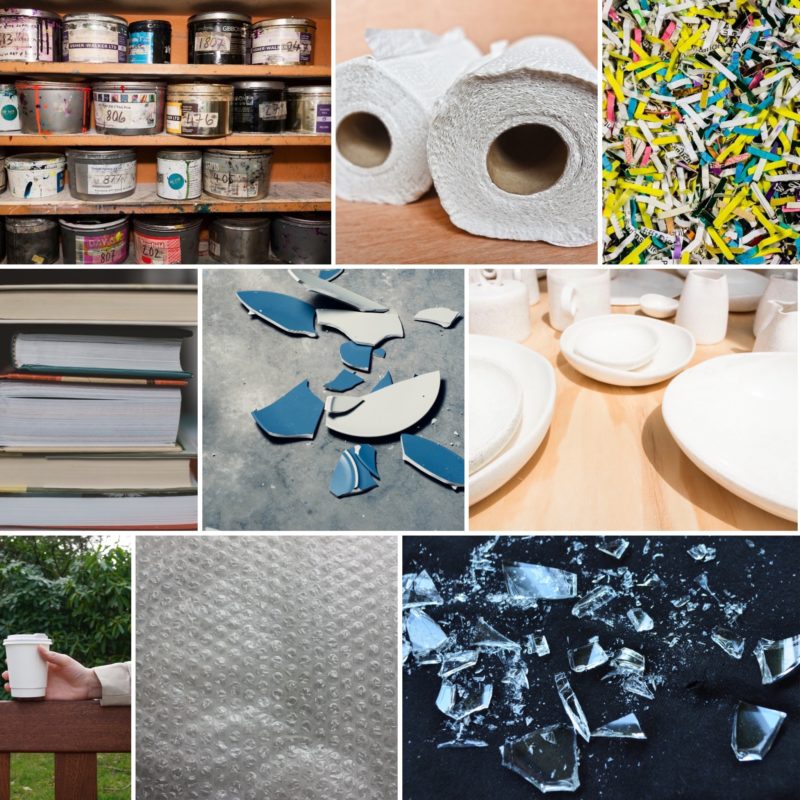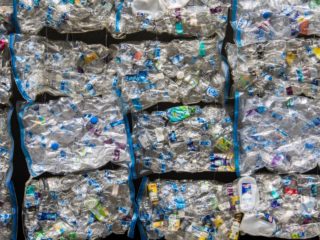As you stand in the kitchen with your empty paper coffee cup, do you wonder whether you should put it in the garbage or recycling bin? All of us have had these moments: What is and isn’t curbside recyclable?
The simple answer is that you’re not alone and the fact is that it’s an incredibly confusing process. To help guide you through the recycling maze, here are the most common items that most of us think are curbside recyclable but actually can’t be tossed in the blue bin.
Table of Contents
- A Few Things to Note…
- “Paper” Coffee Take-Out Cups
- Compostable and Bio-Plastic Products
- Plastic Straws
- Plastic Utensils
- Coffee Pods
- Snack Bags and Other Mixed Material Packaging
- Plastic Bags, Bubble Wrap and Other Plastic Film Items
- Styrofoam and Other Polystyrene Foam Products
- Liquid Containers With Plastic Caps
- Wet Cardboard and Paper
- Shredded Paper
- Gift Wrap, Colored and Tissue Paper
- Paper Towels, Napkins and Tissues
- Greasy Pizza Boxes? Hold On a Minute!
- Hardcover Books
- Wood
- Broken Glass, Pottery, Ceramics
- Intact Ceramics and Oven-Safe Items
- Garden Hoses and Other “Tanglers”
- Bagged and Tied Recyclables
- Wire Hangers
- Textiles
- Electronics and E-Waste
- Hazardous Materials
- Food Waste
A Few Things to Note…
Check Your Local Rules First
This list provides general guidelines. Curbside recycling programs vary from town to town, so check first with your municipality or local waste management service for what will and won’t be accepted in curbside recycling.
Just Because Something Is Recyclable Doesn’t Mean It Will Be Recycled.
Remember, just because something is recyclable doesn’t mean it will be recycled. This is particularly the case with plastic, where the recycling rate in this country is dismal and hovers under 10%. What’s worse, plastic production is poised to surge in the years ahead.
Where does it all go? The vast majority of single-use plastic ends up being incinerated, as lingering waste in landfills, or as environmental pollution. Plastic is the worst culprit, but your best bet is to avoid unnecessary single-use items, regardless of what they’re made of, and opt for reusable and durable alternatives.
Some Items Are Recyclable, But Not Curbside Recyclable
There are quite a few household items that are recyclable, just not curbside recyclable. I note these items below but check local and state rules to see what will and won’t be accepted.
For recyclable, but not curbside recyclable items, check your local town website or municipal hauler for disposal locations, or try Earth 911‘s searchable database to find a recycling drop-off location near you.
“Paper” Coffee Take-Out Cups
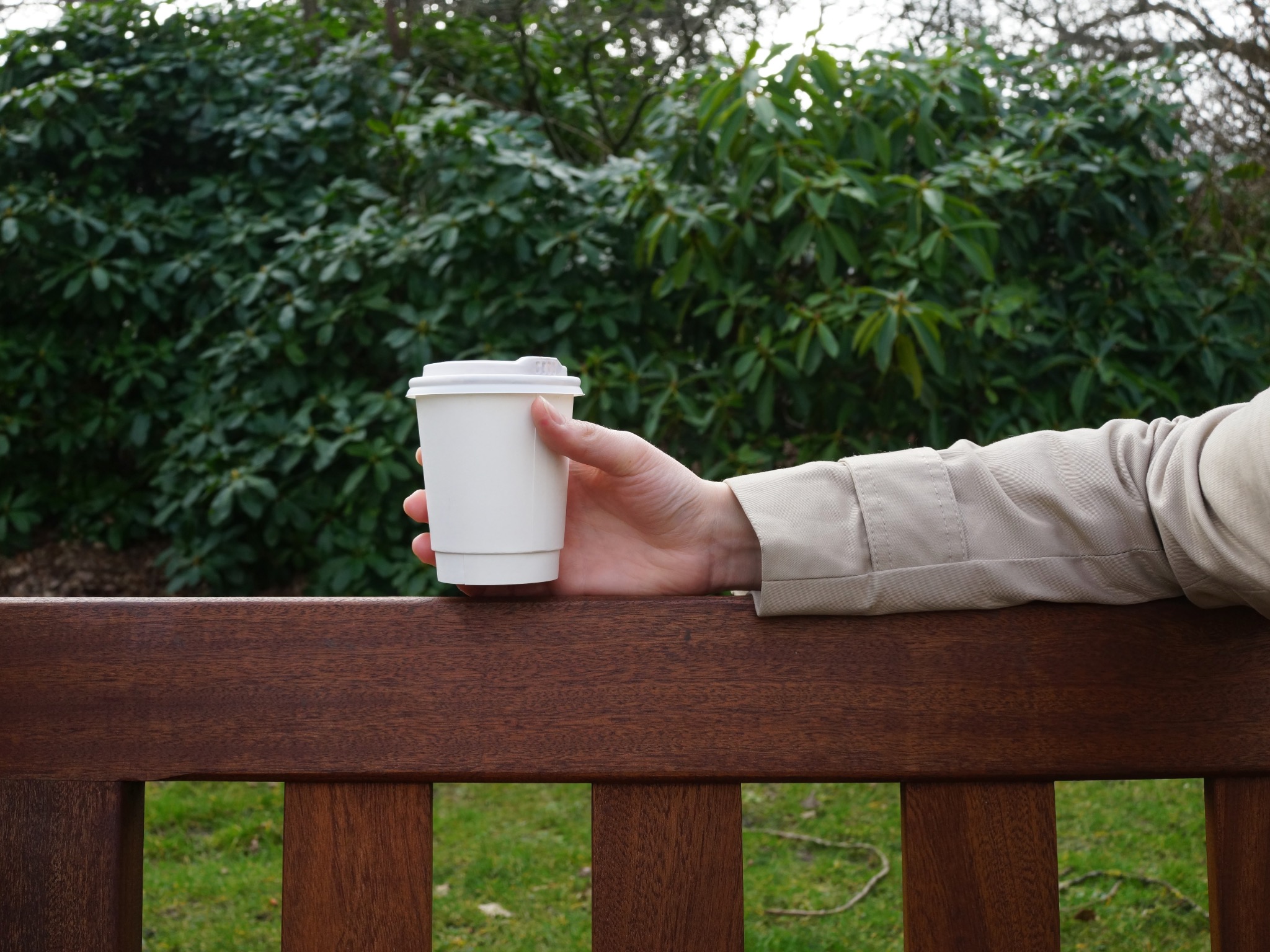
That paper coffee cup? It’s not all paper. In order to prevent hot liquids from soaking through the paper, coffee cups are lined with a thin layer of polypropylene plastic. You’re protected from getting burned and your beverage stays hot for a longer period of time.
As with other products made from composite materials (see numbers 5 and 6 below), the problem is that it’s extremely difficult, and not at all economical, for recycling facilities to separate the materials. In short, don’t place your take-out cups in the recycling bin. (That goes for the plastic lid as well.)
The solution? Reusable coffee mugs!
Compostable and Bio-Plastic Products
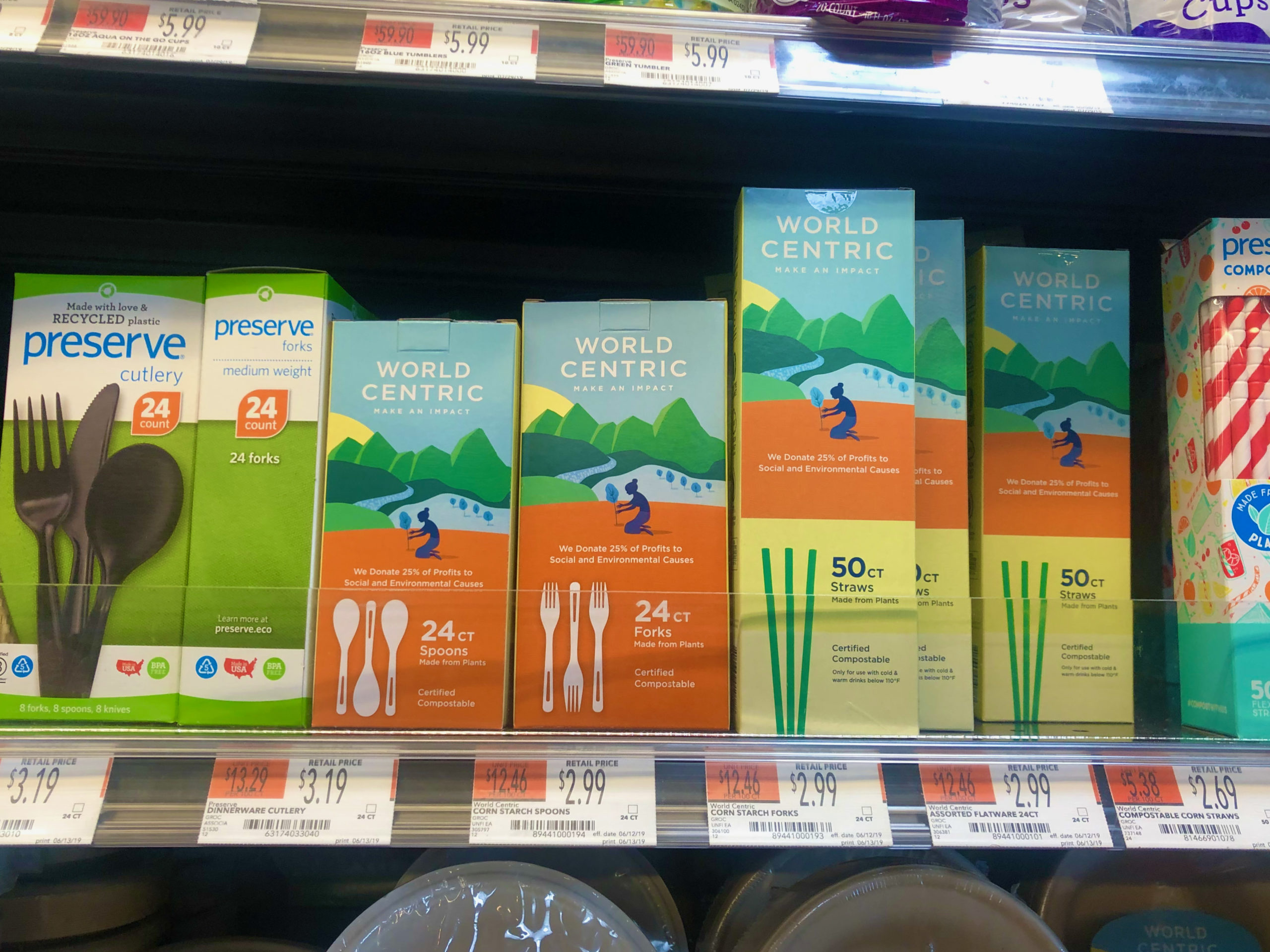
What about those compostable coffee cups and bio-plastic beverage cups you’ve been given at eco-friendly food establishments? Or the compostable tableware sold at natural or zero waste stores? Can’t you put these products in the recycling bin?
The simple answer: No.
Compostable plastics are not the same as regular fossil-fuel-derived plastics. These products can only be disposed of in certified compost facilities and cannot be recycled.
Plastic Straws
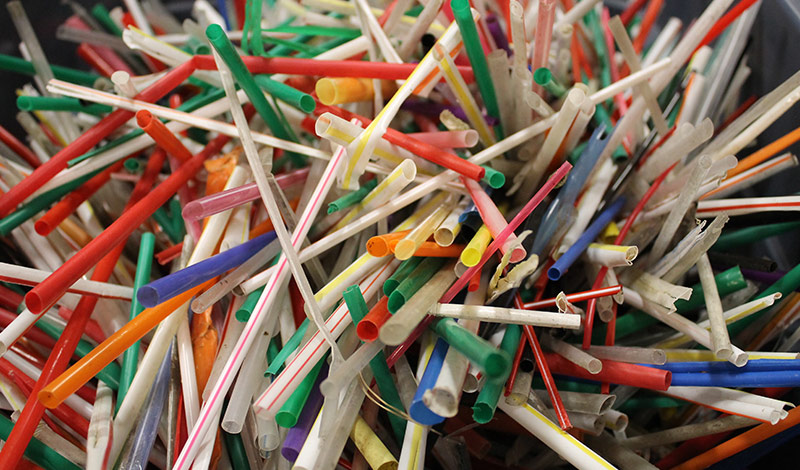
Plastic straws suck. They’re used for mere minutes before being discarded. And no, they can’t be recycled. They either end up in a landfill, incinerated, or polluting the environment and harming wildlife.
The alternative is so simple: reusable straws. The choices available to consumers are endless. And there’s always the easiest option, which is simply to go straw-free!
Plastic Utensils
Confusion over whether plastic utensils are curbside recyclable is due to the fact that in general, rigid plastics can be recycled. Plastic utensils, however, are not curbside recyclable. This is because of their small size and many brands are made from composite materials, making them difficult to sort.
Are you still confused about what type of plastic can and can’t be recycled? The easiest way to avoid confusion is to stick with reusable options as much as possible.
Coffee Pods
This is similar to the confusion over whether plastic utensils are or aren’t curbside recyclable: Plastic coffee pods are made of rigid plastic so why can’t they go in the recycling bin?
Plastic coffee pods are made of composite materials, making them difficult to separate. In addition, they’re filled with coffee, something recyclers don’t want (at least, in their machinery)! Some manufacturers of coffee pods will take back their pods, but the question is whether they’re actually recycled. The better option is to minimize the use of coffee pods.
Snack Bags and Other Mixed Material Packaging
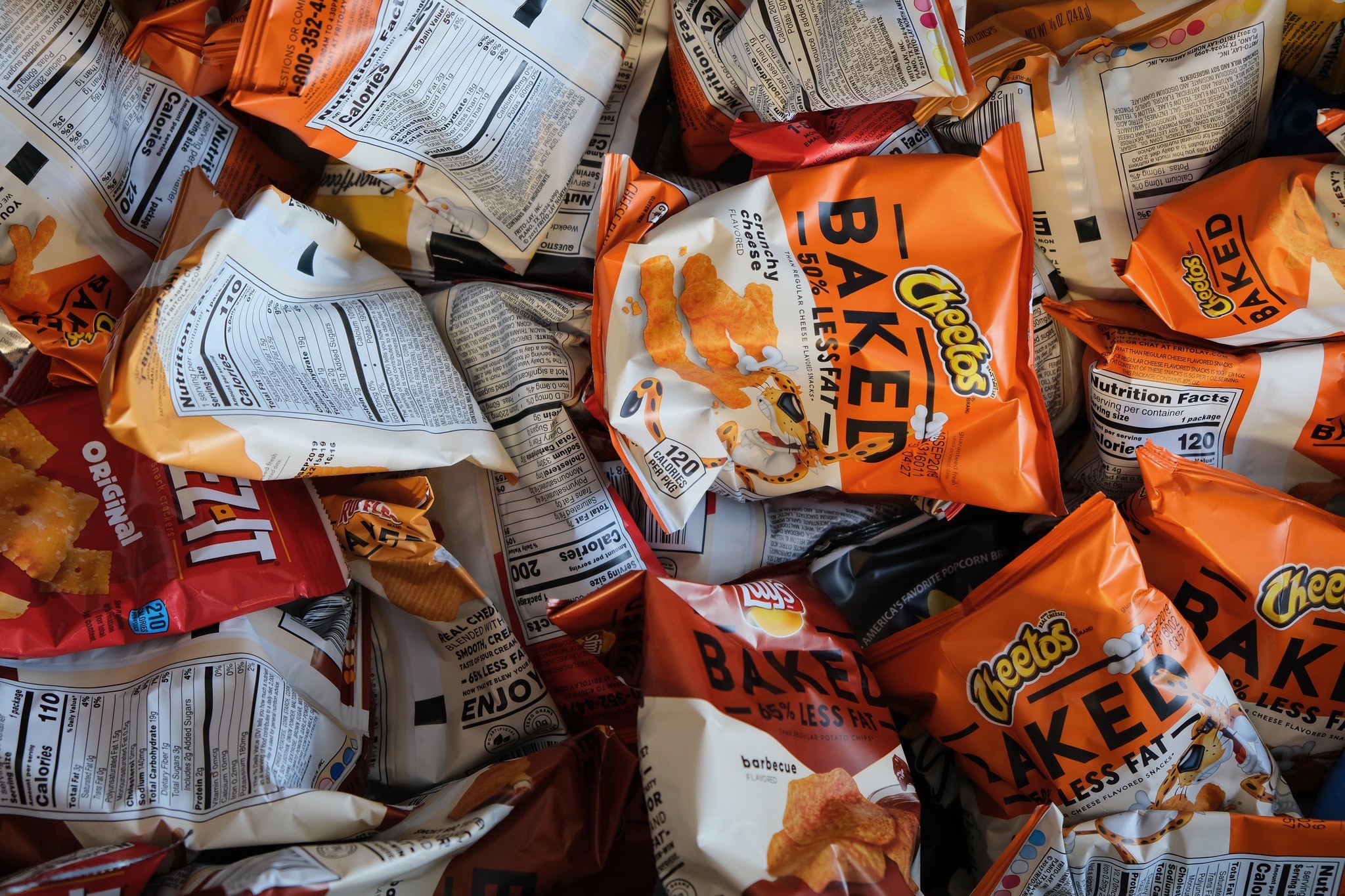
Another name for those flimsy plastic bags used for single-serving snacks is “horrible hybrids.”
This type of packaging is made of composite materials — often aluminum with plastic or mixed plastic — and is notoriously difficult to separate into its component parts for recycling. They also gum up the processing machines at recycling facilities, but more importantly, the market demand for the separated parts is insufficient to justify the expense and hassle of separating composite packaging.
While some efforts are underway to find a solution to recycling mixed material packaging, new technologies are in their infant stages. The most environmentally friendly answer is to minimize excessive packaging by avoiding single-serving foods and individually wrapped products.
Plastic Bags, Bubble Wrap and Other Plastic Film Items
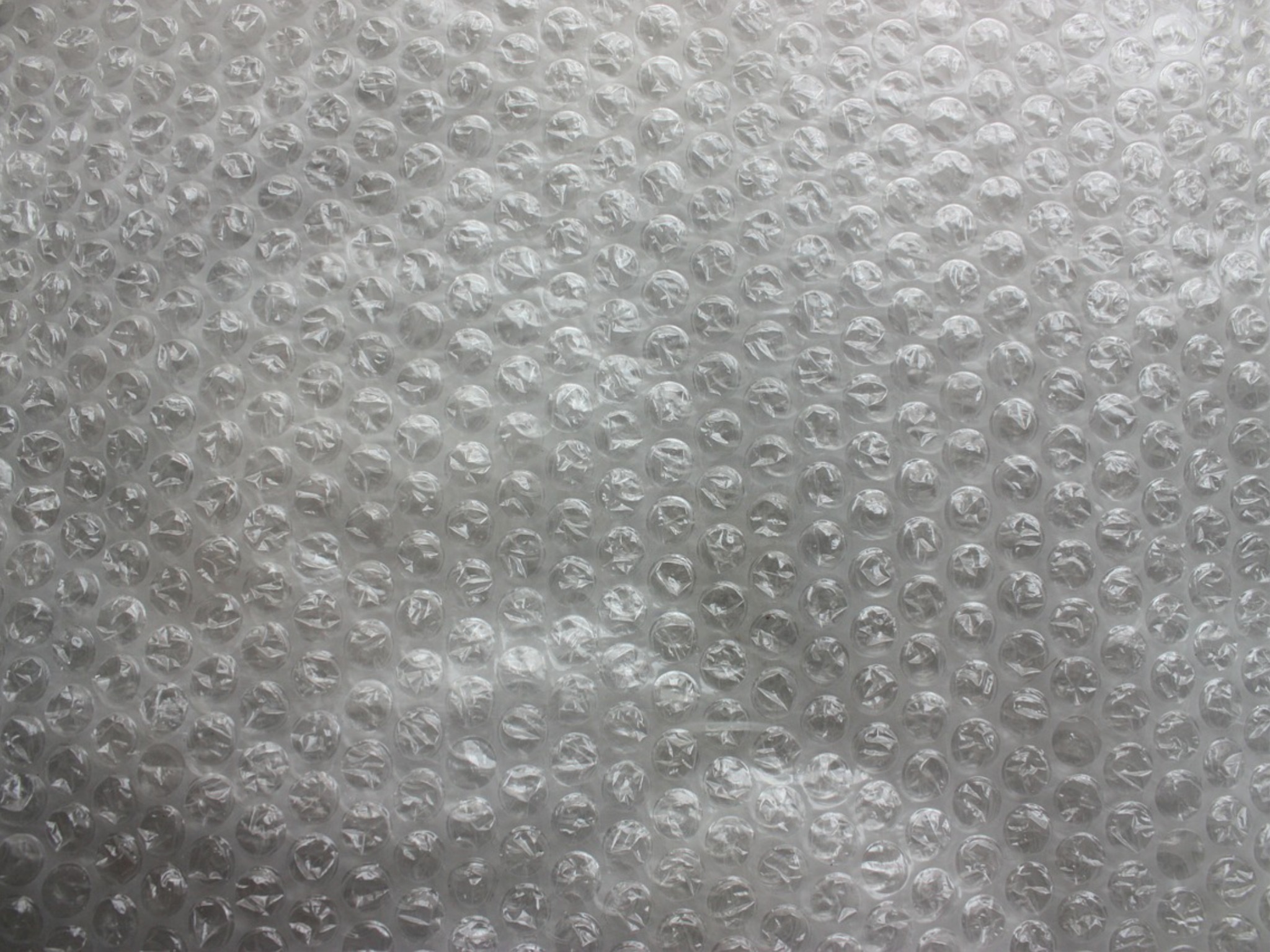
While most curbside programs won’t accept plastic bags or film, many large grocery retailers and big-box stores will accept plastic bags, bubble wrap, newspaper bags, dry-cleaning bags, and shrink-wrap, for recycling. In New York, it’s mandatory for large stores and retail chains to locate receptacles in convenient locations. As with any recyclable, items must be clean and free of debris.
See Plastic Film Recycling organization’s searchable directory for drop-off locations. PFR also includes a list of what type of film can and can’t be recycled.
Styrofoam and Other Polystyrene Foam Products
Expanded polystyrene foam products — Styrofoam cups, containers, packing peanuts — are not curbside recyclable.
Although some foam plastic manufacturers offer recycling programs, the market for recycled foam products is limited. While light, its expanded form presents collection and space challenges for transporters and processors, making it an expensive product to recycle.
The best option is to avoid using styrofoam products altogether. The good news is that municipalities, counties, and even NY State, have passed laws banning the use of these products that are derived from non-renewable fossil fuels.
Liquid Containers With Plastic Caps
Our county recycles plastic bottle caps with liquid containers, but many communities do not. Remove the plastic caps on cartons, such as milk, juice, or soup cartons, before placing the carton in the recycling bin.
What about the caps and lids to plastic bottles and containers? In most cases, since the lid is of the same material as the base, you can recycle the lid or cap with its base.
Wet Cardboard and Paper
Did you leave your recycling bin out overnight and it rained? Bring it back in and bag it up for the garbage. Although a little bit of moisture won’t affect the viability of paper recyclables, many municipal recycling programs will not accept soaked paper and cardboard since it’s difficult to recycle.
Shredded Paper
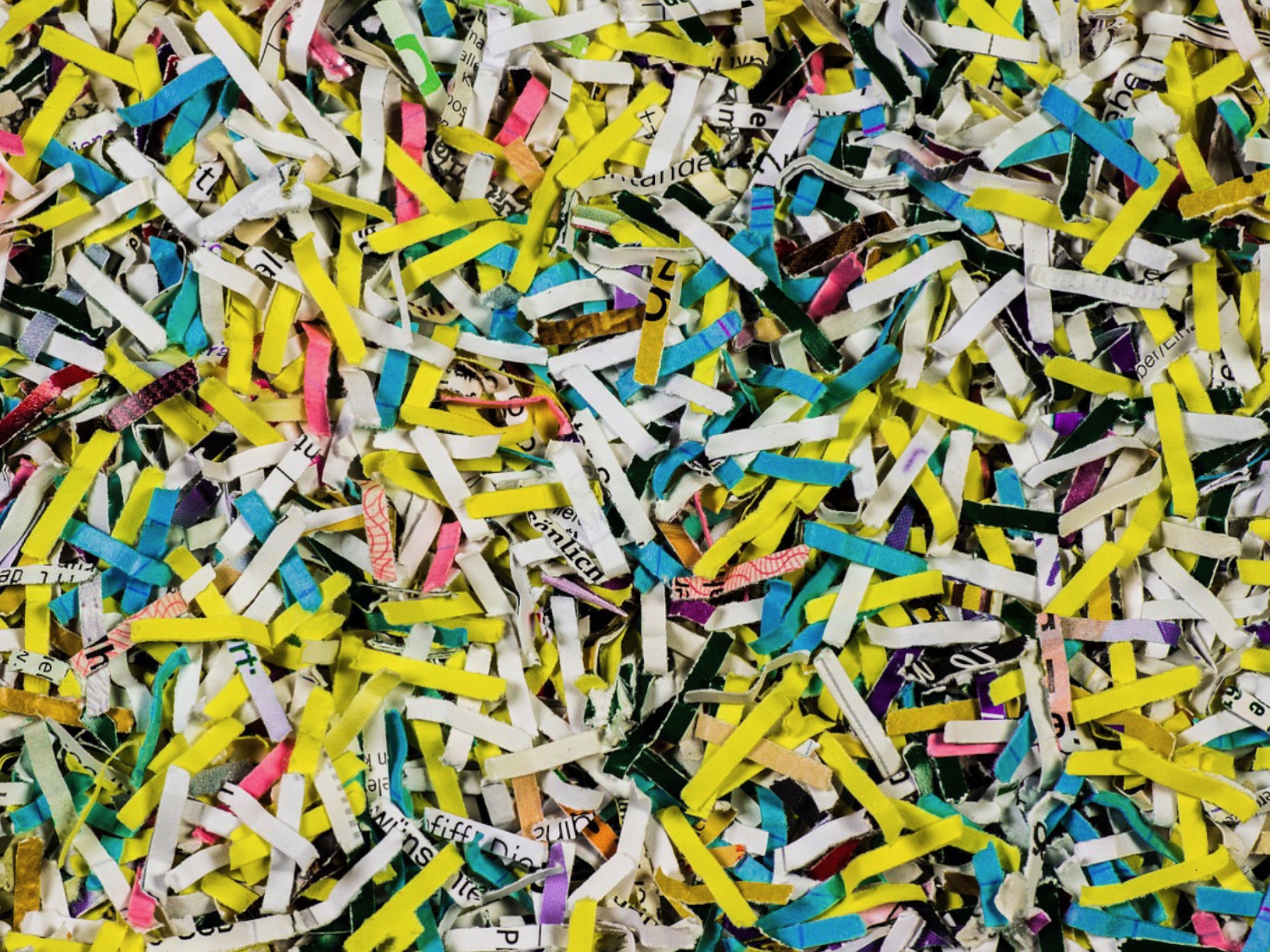
Paper is curbside recyclable. Shredded paper is not (though check your local recycling rules). Most recycling facilities can’t accommodate the small scraps of paper since it risks gumming up their machinery.
Wondering what to do with all that shredded paper? Some municipalities will accept shredded paper at drop-off locations. You can also use it as packing material, kitty litter liner, or as a starter to make more paper!
Gift Wrap, Colored and Tissue Paper
Not all paper is curbside recyclable. Here are the kinds of paper that should stay out of your curbside bin:
- Colored paper that is completely dyed with color(s) and can compromise a batch of white paper. To check, rip a piece of the paper to see if it’s dyed throughout. If it is, don’t put it in the bin.
- Gift wrap that’s laminated or that contains decorative elements, such as glitter, foil, sequins. Also, paper that has an excessive amount of tape and ribbons still on it.
- Tissue paper is typically recycled, making it more difficult to recycle again. Many municipalities will not accept tissue paper curbside, but as always, check first.
Paper Towels, Napkins and Tissues
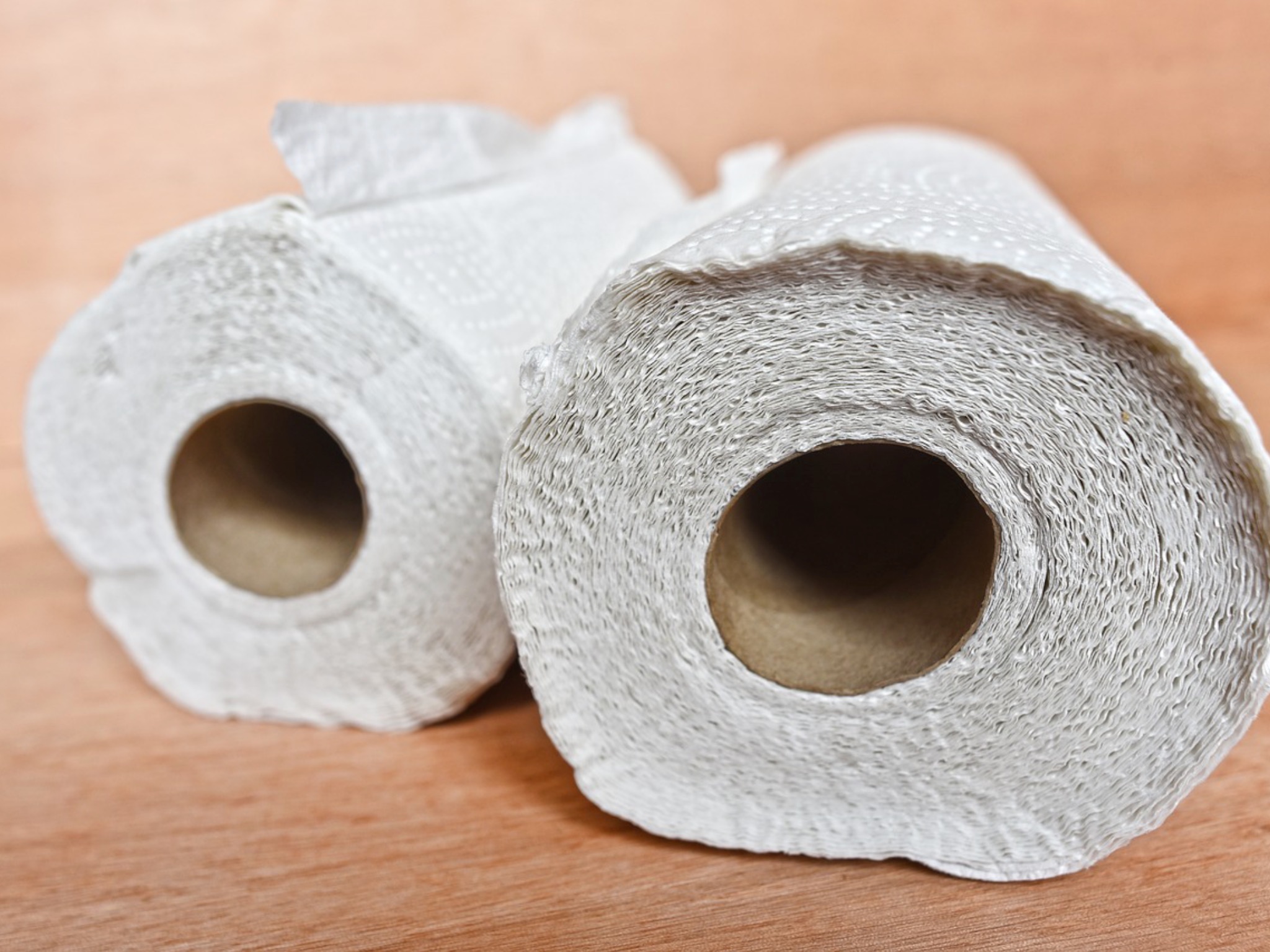
Paper towels, napkins, and tissues are not curbside recyclable for a number of reasons: They’re usually soiled with food or bodily fluids, and most likely they’ve already been recycled, rendering them difficult to recycle due to to their shortened fibers. Instead, throw these items in the garbage or compost them.
The best solution: cleaning rags, cloth napkins, and handkerchiefs!
Greasy Pizza Boxes? Hold On a Minute!
This one’s seen a lot of back and forth. The mantra for years was: Greasy pizza boxes are not curbside recyclable! People were instructed to separate the soiled and clean portions and only recycle the clean. If there was doubt, throw the entire box out.
The concern had been that grease and food on pizza boxes would compromise the integrity of the recycled cardboard. A recent study, however, shows that new technology allows recycling facilities to screen out cheese and debris from the pulping process. The result is that the majority (73%) of recycling programs accept pizza boxes, grime and all.
So greasy pizza boxes are for curbside recyclable unless covered in gunk. I include it in this list because of the confusion over recyclability. That said, always ensure that all your recyclables are rinsed or wiped clean of excess debris and food.
Hardcover Books

The composite material in hardcover books is too difficult and costly to separate into its component parts. If you want to recycle your hardcover books, remove the covers and binding material before placing them in the bin. Another alternative is to donate books to a local library, school, or community organization.
Wood
Treated wood can’t be recycled since the chemicals and additives could be unsafe. Check your local rules to see whether untreated wood can be recyclable at a drop-off facility. Otherwise, consider upcycling or repurposing unwanted wood.
Broken Glass, Pottery, Ceramics
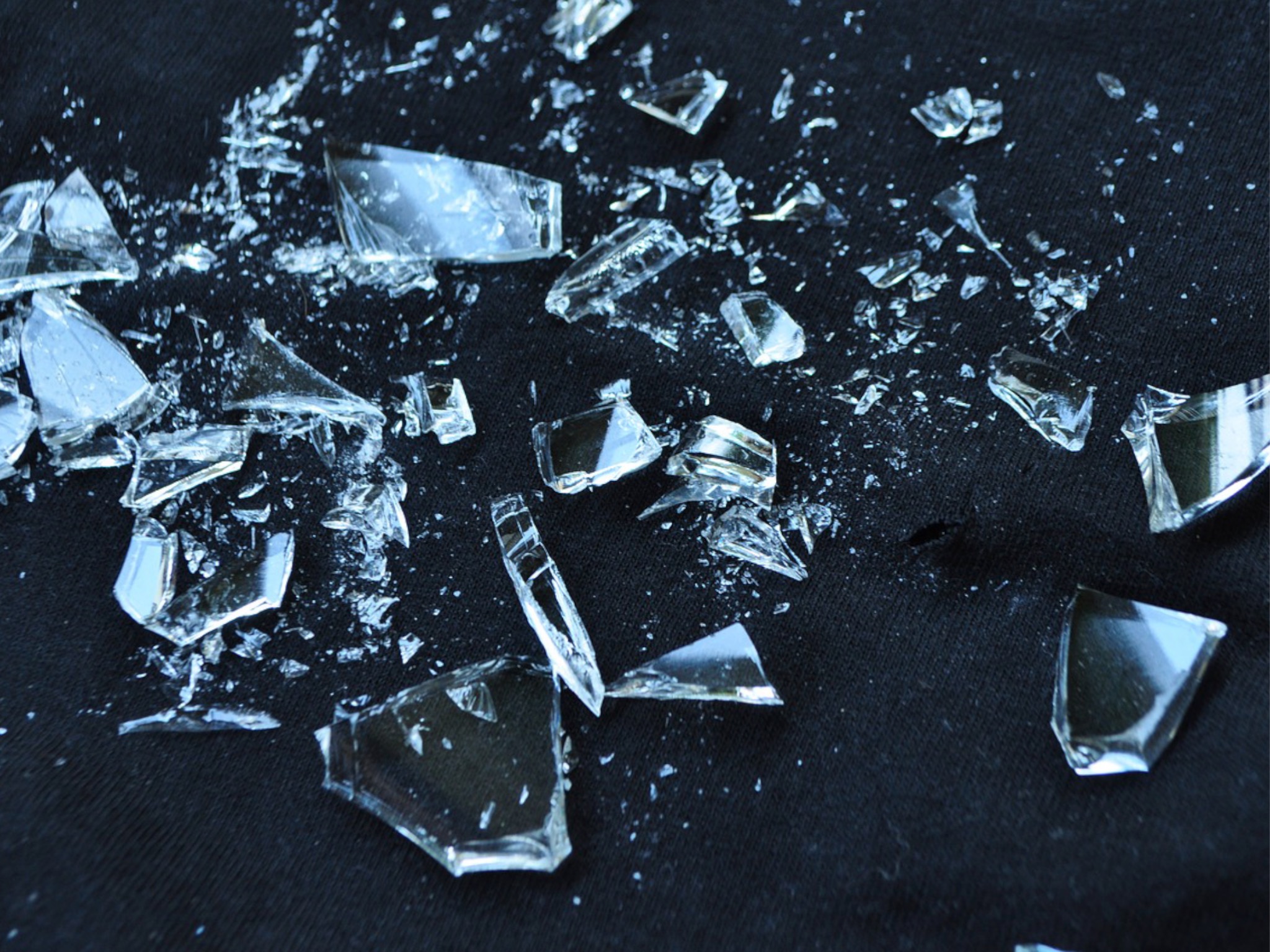
Glass bottles are recyclable, just not broken glass of any kind, including bottles, drinking glasses, windows, mirrors, or light bulbs. (Yes, a lot of people try to recycle bulbs.) Add broken pottery and ceramics to this list.
Don’t throw away loose broken glass in the garbage. It can be a dangerous safety hazard for waste management crews. Consult your local waste authority to learn how to safely dispose of broken glass. In most cases, you’ll need to wrap the broken glass securely in a box with tape and label the box with “broken glass” before leaving it out for garbage collection. If the amount of broken glass is considerable, you’ll probably need to drop off the material at a household waste facility.
Intact Ceramics and Oven-Safe Items
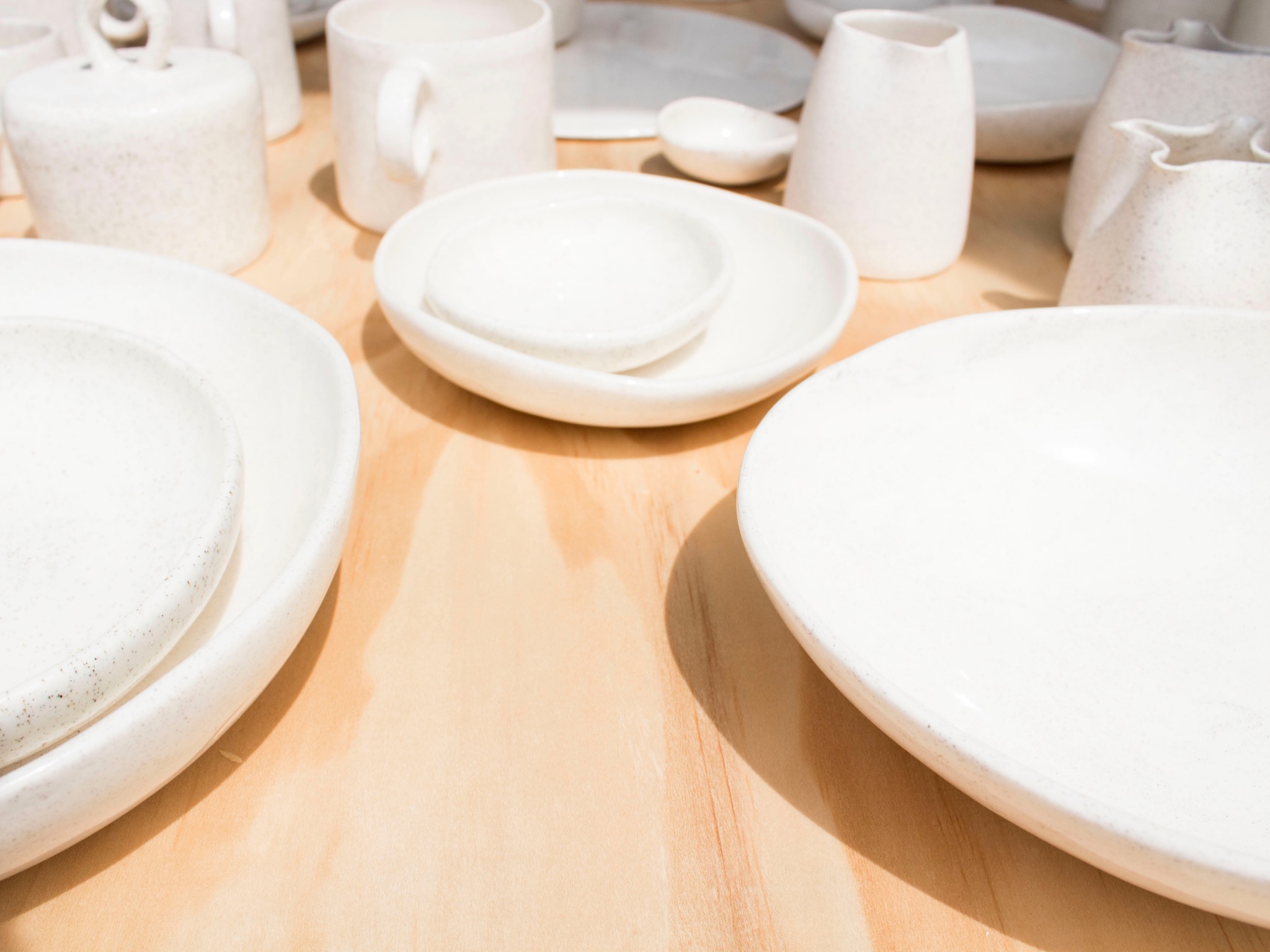
Even if they’re not broken, don’t put unwanted ceramic mugs, dishes, or vases in the curbside recycling bin. Heat-treated glass and ceramic items that are oven-safe, such as baking dishes, plates, and cookware, are also non-recyclable.
Most recycling programs will not accept these items since they weaken recycled products and thus, are unsafe for reuse. Instead, donate or upcycle items that are in decent condition.
Garden Hoses and Other “Tanglers”
“Tanglers” are any kind of item that can get tangled in recycling equipment. These include garden hoses, rope, Christmas lights, electrical cords, and plastic mesh bags for produce. Add plastic bags and textiles to the Tanglers list. For all of these items, dispose of them in the trash.
Bagged and Tied Recyclables
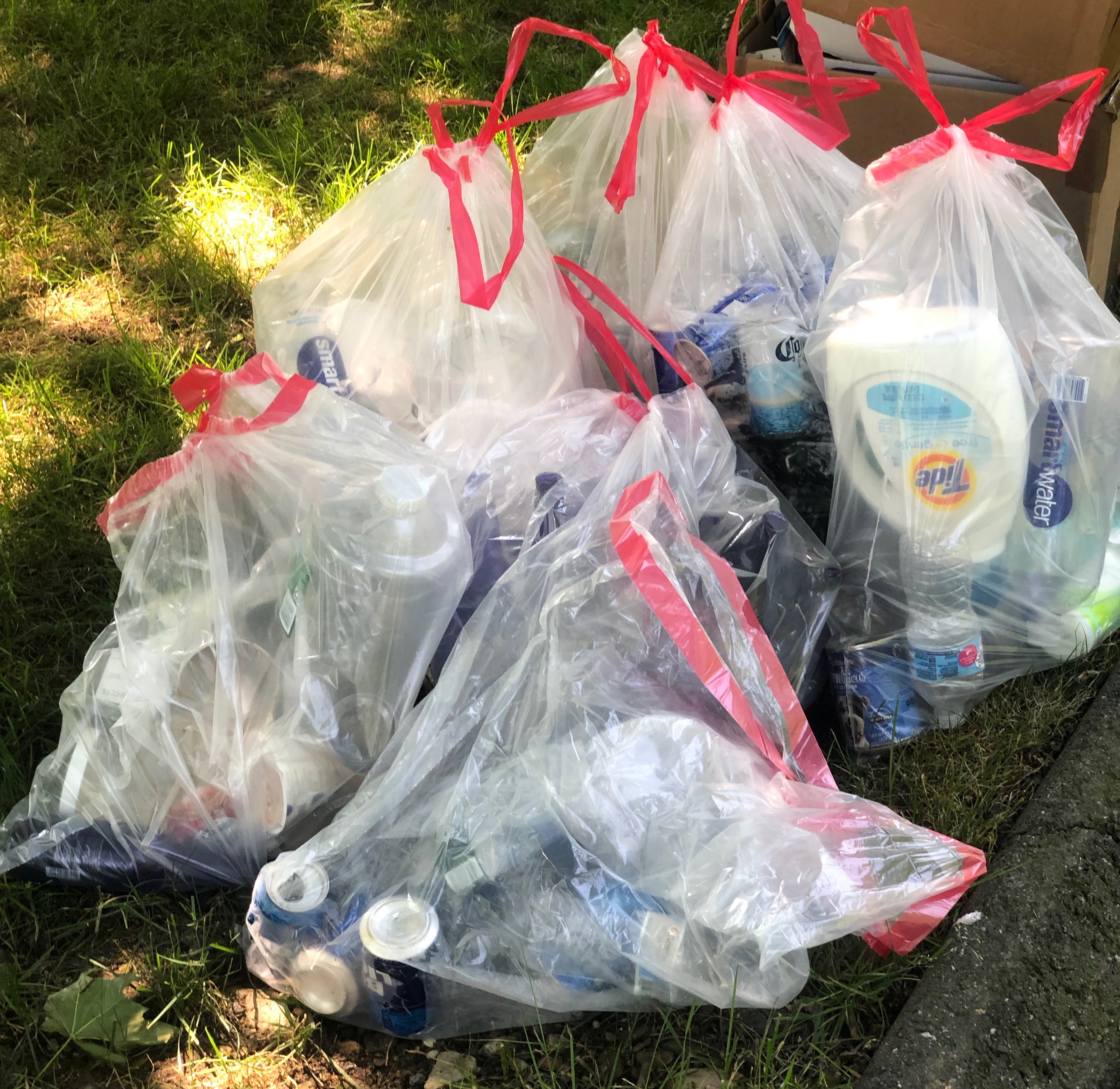
A close cousin of Tanglers, recyclables that are bagged and tied can’t be sorted and processed. The garbage bags and cords will also gum up the recycling facilities. Leave your recyclables loose in the curbside bin. If you’re concerned about flyaway paper, place a heavy rock or brick on top of the stack.
Wire Hangers
In general, metal wire hangers can’t be placed in your recycling bin, but an increasing number of dry cleaners (including mine) will take back hangers for reuse. Check with your dry cleaner and if they don’t offer this service, ask that they add it.
You can also check your local municipality to see if they’ll accept hangers for scrap recycling and some consignment and charitable organizations welcome hanger donations.
Textiles
For detailed information on textile and recycling your unwanted clothing, see Green That Life’s post on clothes recycling.
Electronics and E-Waste
For detailed information on how to recycle your electronics and e-waste see Green That Life’s post on e-waste.
Hazardous Materials
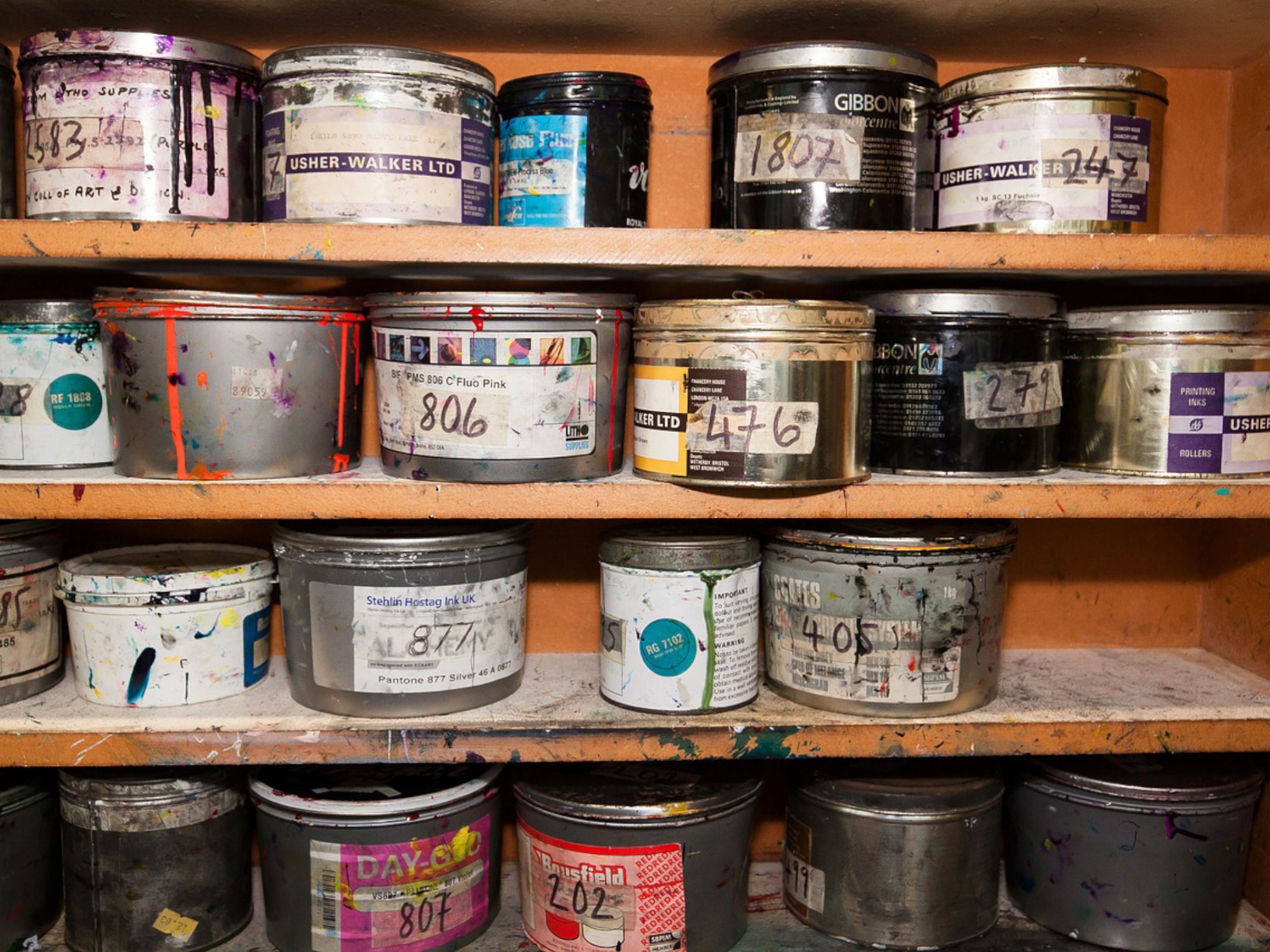
Don’t toss that anti-freeze in the recycling bin! Other hazardous materials include brake fluid, motor oil, paint, aerosol cans, poisons, chemicals, and medical waste.
Some household hazardous materials are recyclable and many municipalities hold hazardous waste take-back days or provide a drop-off facility for this type of waste. Consult your local town website for information or Earth 911’s database.
For more information on how to properly dispose of hazardous waste, visit the EPA’s page of U.S. State environmental agencies.
Food Waste
Technically, food waste shouldn’t be included in this list–most of us know not to put food in the recycling bin, but I thought it important to add since food waste can be recycled!
Try your hand at home composting to recycle food waste into nutrient-rich soil, or check your area for food waste recycling services. My town offers a municipal food scrap recycling service and yours might too. Check your town website for information, and see Litterless.com for a list of private recycling services across the country.

